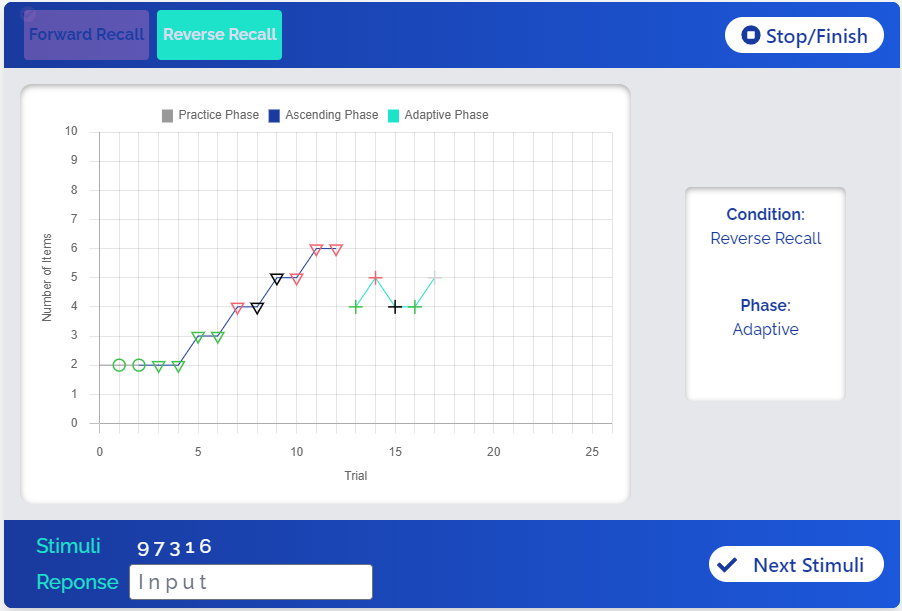DigiSpan
Appropriate for age 4 and over
DigiSpan is a test of short-term memory and working memory. It is a computer-administered test that is based on the digit-span test, versions of which are part of many psychological and auditory processing test batteries. DigiSpan has two conditions. In forward span, the task is to repeat back the digits heard, in the same order as presented. In backward span, the digits must be repeated back in the reverse order. Both conditions start with practice trials of only two digits. In successive trials, the number of digits keeps on increasing for as long as the person keeps getting sufficient trials correct.
In addition to the standard trials of increasing length, DigiSpan includes a final five additional trials, whose length depends on the correctness of the preceding response. These trials provide an additional score, which DigiSpan combines with the traditional score. This addition increases the test precision and also enables an internal check of the reliability of the measurement.
DigiSpan has several advantages over the much-used manual digit-span tests, in which the clinician says the stimuli, records the responses on paper, and later scores them. By contrast:
- In DigiSpan, the stimuli are presented by the computer, through headphones, with a standardised rate, clarity, style and level of presentation.
- automatically determines the length of each succeeding trial, including the additional five adaptive trials.
- automatically scores the responses, including converting the raw scores to age-appropriate scaled scores.
- is more accurate, because of the additional trials.
- monitors response consistency to flag potentially unreliable results.
Assessing memory in people, especially children, with listening difficulties is important for two reasons. First, a memory deficit may be the primary cause of the child’s real-life listening difficulties. Second, a memory deficit may cause low scores on some tests of auditory processing, resulting in the wrong conclusion being drawn about the nature of the child’s problem if the memory problem is not recognised and allowed for.

Published Science
Dillon, H., Boyle, S., Gaikwad, S., Luengtaweekul, P., & Cameron, S. (2024). DigiSpan: Development and evaluation of a computer based, adaptive test of short-term memory and working memory. Journal of Speech, Language, and Hearing Research, 67, 2729–2742. https://doi.org/10.1044/2024_JSLHR-23-00466
